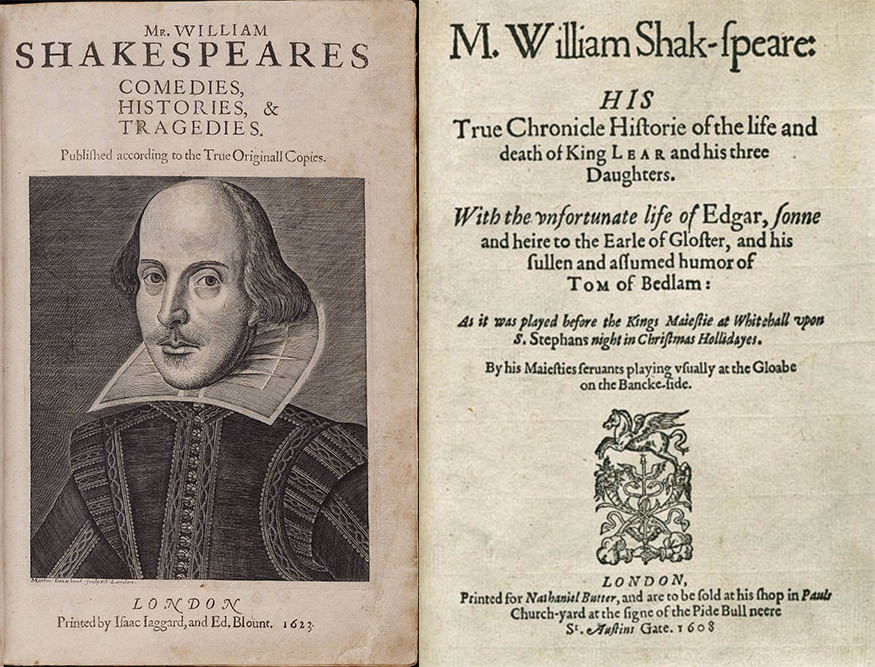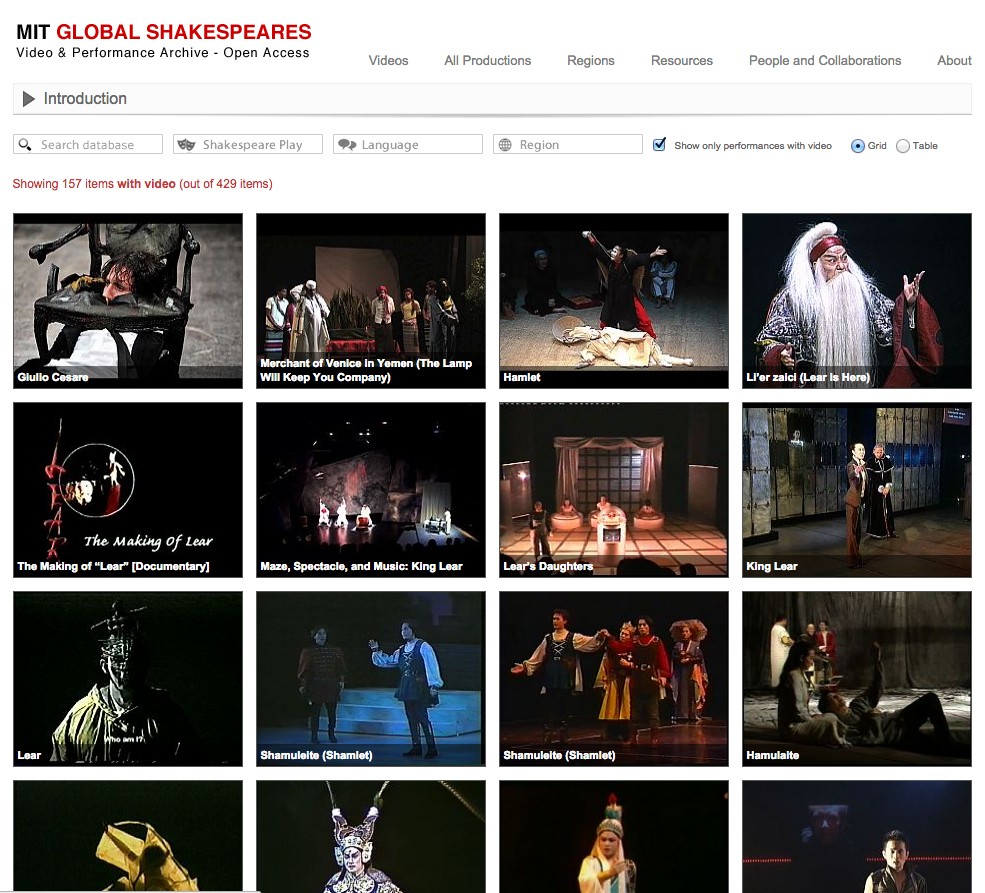Council for the Arts Tickets Program provides MIT students with access to the Bard and other worthy entertainments
Attending a production of one of Shakespeare’s plays is a superb reminder that the origin of the word audience is “to hear.” Professor Shankar Raman (Professor, Literature), one of six MIT faculty members who brought classes to see the Globe’s production of King Lear at Emerson – thanks to the MIT Council for the Arts Tickets Program – said that it is invaluable for his students to listen to (and get used to) the “texture of the language,” in real time. For Professor Janet Sonenberg (Professor, Music and Theater Arts), whose students also attended Lear, she sees sitting in the audience – without the burden of a particular task or assignment — as a fundamental way for her acting students “to learn how to listen,” as well as to learn how to be physically involved in a scene. Students in Professor Kim Mancuso’s (Lecturer, Music and Theater Arts) acting class also stressed that hearing the text as the actors performed was a tremendous aid to their understanding of the play.
Since its inception in 1995, the Tickets Program sponsored by the Council for the Arts at MIT has enabled countless students to attend performances, such as this production of King Lear, and performances by a number of area chamber ensembles and orchestras, theatre companies, and now the Boston Ballet Company. The Council also underwrites memberships at Boston-area art museums, and has helped to defray travel expenses for students to go to exhibitions at museums outside the Boston area. The $15,000 annual budget comes from the generous contributions of individual council members. Susan Cohen, the Director of the Council for the Arts, points out the program’s flexibility and that its reach extends beyond Music, Theatre and Arts faculty: “People can use their imaginations. If a physics professor wants to take a class to see a production of Copenhagen, for instance, we will be able to support it.” While the program is designed to purchase tickets for faculty to take their classes to events, extra tickets are made available to the entire student body.
Given the number of students in the Literature and Theatre Arts departments who attended King Lear, including Professor Raman’s and Professor Peter Donaldson’s (Ford Foundation Professor of Humanities and Professor of Literature) sections of “Global Shakespeares” and Professor Sonenberg’s and Professor Kim Mancuso’s sections of “Introduction to Acting,” this production is a marvelous case of the positive impact of the Tickets Program.
“Global Shakespeares” focuses on four or five Shakespeare plays each semester, introducing the students both to the text as well as to how Shakespeare has been taken up and transformed through performance globally. The class engages students with the question of how performance shapes our understanding of the text. According to Professor Raman, they must rely on film versions or filmed stage performances for practical reasons, and “It is thus invaluable to have the opportunity to take students to see an actual live performance during the semester — it’s often an entirely new experience for this generation of students, and the difference of seeing something live is quite palpable to them.” He says their class discussion ranged from issues of staging and costuming to textual analysis to the serendipity of live theatre. For instance, during the opening night’s performance, in the horrific blinding of Gloucester, the tragedy was undermined when Cornwall threw an eyeball off-stage and it ricocheted off the set, inserting some unexpected comedy into the grim scene. It is the accidental and unexpected character of live theatre that vivifies the Bard’s texts and viscerally moved his students, as it has audiences for nearly 500 years.

In Peter Donaldson’s performance intensive section of “Shakespeare,” students spent four class periods studying the text of Lear prior to attending the Globe’s production. Given the emphasis in Donaldson’s class on examining different versions of the play, his students have not only discussed the performance they attended, but also are incorporating comparisons between the Globe production and the Oliver film version in multi-media essays on King Lear.

In “Introduction to Acting,” students explore the actor’s tools, including body, voice, mind and imagination. For Professor Sonenberg, active learning is key to students’ growth: “When they see something with the proficiency-level of the Globe, this kind of active learning will forever change the way they watch theatre or films,” and she anticipates that the physical skills they observed will influence their own performances. She affirms that it is formative for students who are beginning to learn acting to have “this opportunity to watch people who do it really well and with material as tensile as Lear – a play that will endure despite any production’s variations or limitations.” Sonenberg, who uses the Tickets Program regularly for her classes, lauds the benefits of taking her students to live theatre, “It makes what we are teaching real.”
Professor Mancuso’s section of “Introduction to Acting,” studies Shakespearean texts as part of their work on voice and text, and Lear was an ideal introduction to Elizabethan English textual work. With varied exposure to staged theatre, Mancuso’s students find it enlightening to see a fully produced play. One student remarked, “Lear changed the way I understand theatre,” while another added, “It was so valuable to me to see one particular interpretation of a classical text that has been done in a lot of different ways.” Many others shared thoughts about how the production connected them to the technical content of Mancuso’s class, relating more deeply to concepts like physicality or vocal dynamics after seeing Lear. Mancuso explained that she builds her intro classes around use of the Tickets Program: “Walking into a theatre and seeing a play (a dramatic text) performed is a brand new experience for most of them and supports my work in the intro classes in so many ways. They become less intimidated by confronting live performance and are eager to do that again. Wow! No screens involved! Deep thinking. Physical expression.” She says the experience has a profound effect on her students’ work.
While the faculty who brought their classes to see Lear focus on a range of topics related to literature, performance, Shakespeare Studies, digital humanities and writing, they share their appreciation for the Tickets Program and the benefits their students derive from it. Faculty interested in obtaining tickets to upcoming events should contact council-arts@mit.edu to inquire.
